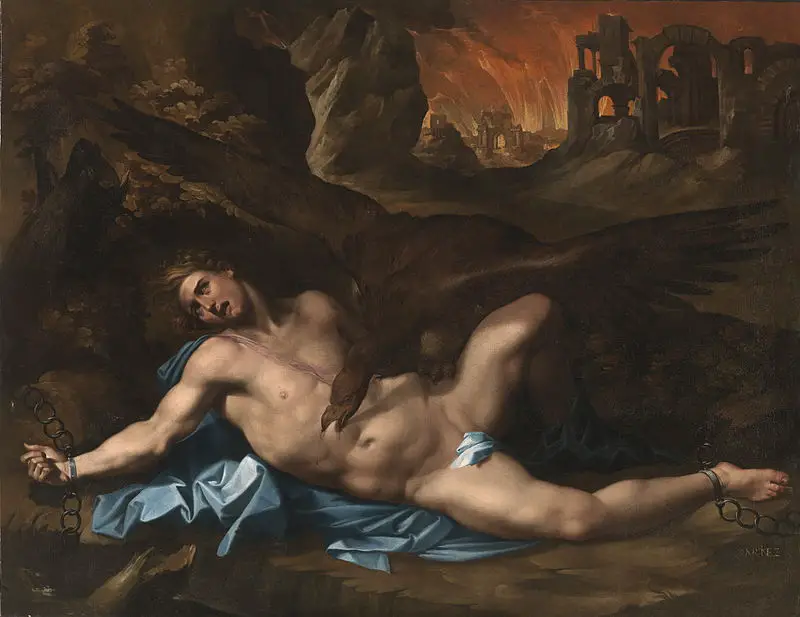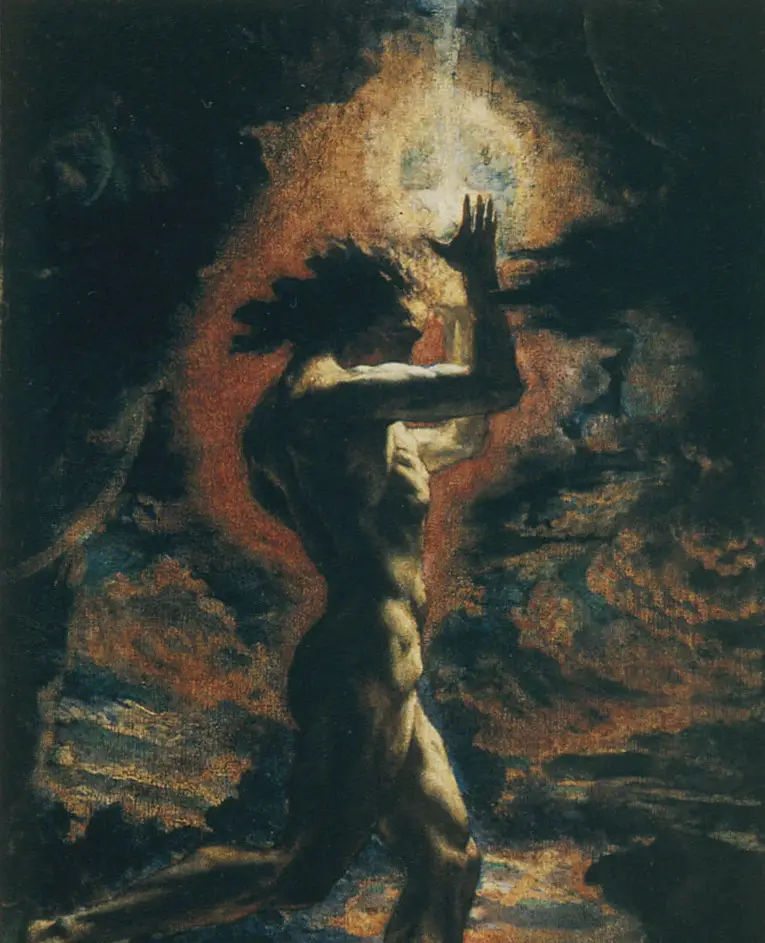Tag: Aeschylus
The "Heavenly Fire": Kronos, Phaeton, Prometheus
di Andrew Casella
cover: Jean Delville, Prometheus, 1907)
[Continued from The astronomical significance of the Golden Age: Astrea and the "fall" of Phaeton]
In a Mongolian wedding prayer it is stated that: "Fire was born when Heaven and Earth separated": Therefore, before the celestial equator (Father Heaven) and the ecliptic (mother Earth) moved away (ie the inclination angle of about 23 ° of the ecliptic with respect to the equator was recorded), the" Fire " did not exist. At the beginning, the Milky Way united heaven, earth and the world of the dead: the southern part of the Galaxy, in correspondence with Scorpio and Sagittarius, is, for many traditions, the place dedicated to the collection of souls waiting to reincarnate.


